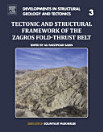Reservoir Characterization, Modeling and Quantitative Interpretation: Recent Workflows to Emerging Technologies
About this eBook
About the author
Dr. Shib Sankar Ganguli is a Scientist at the CSIR-National Geophysical Research Institute and received his Master’s degree in Applied Geophysics (2011) from Indian School of Mines and PhD (2016) from Academy of Scientific and Innovative Research, India. He is a graduate of the SEG/ExxonMobil Student Education Program. Prior to joining CSIR as a Scientist, he served as Inspire Faculty at IIT Kanpur after receiving the highly competitive DST Inspire Faculty Award from the Government of India. He also worked as a visiting scientist at SINTEF Petroleum Research, Norway. He is a recipient of the NASI Platinum Jubilee Young Scientist Medal 2020 from the National Academy of Sciences, the Young Scientist Award from the Ministry of Mines, the TAS Young Scientist Award 2019 and the Springer Outstanding Thesis Prize 2017. His research interests are not limited to but include exploration geophysics, reservoir characterization, seismic, rock physics.
Dr. Vijay Prasad Dimri completed his post-graduation and PhD from the Indian School of Mines, Dhanbad. He joined the National Geophysical Research Institute (NGRI), where he was the Director from 2001-2010. He was also previously the Director of GERMI, Gandhinagar, Gujarat and CSIR-Distinguished Scientist in CSIR-NGRI, Hyderabad. He was a post-doctoral Fellow in Norway (1986-88) and held the Senior DAAD Fellowship (2001). He was also Adjunct Professor of the University of Hyderabad; IIT, Kharagpur; and Honorary Professor of Andhra University, Visakhapatnam. He has about 125 international and national publications, three filed patents, and nine authored/edited books. Dr. Dimri has received the PadmaShri award in 2010 from the Govt. of India. He is the first Asian recipient of the prestigious Lorenz Award of the American Geophysical Union. He also received Axford Lecture Award in 2010 from Asia Oceania Geosciences Society, Singapore.







